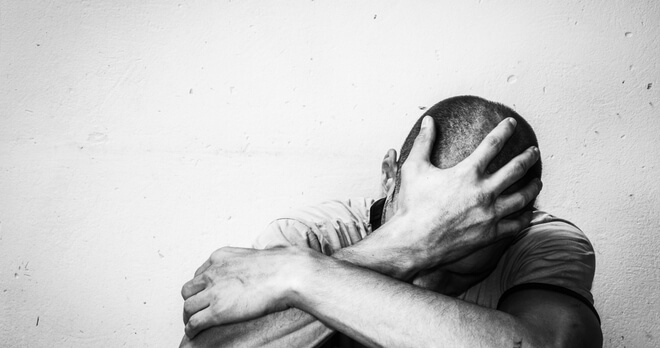Is there a link between Traumatic Brain Injury (TBI) and homelessness?

Christmas is traditionally seen as a time for giving and for compassion. “Charity” is a word on many peoples’ minds at this time of year, so it seems to me a rather apt moment to write something on charitable causes with close ties to my firm.
Those charities are Crisis (whose aim is to combat homelessness) and Headway (who provide support and advice for people who have sustained head injuries). The link may not be immediately obvious, however recent research has found there is in fact a strong correlation between the people whom both charities campaign on behalf of.
We have an interest in this not least because our clients can face these issues. People who find themselves homeless need specialist advice given their vulnerability and complex psycho-social factors which can affect their legal claim.
In December 2019, an extensive study considered the incidences of traumatic brain injuries (“TBIs”) in homeless people, and the findings are rather stark. I would encourage any readers to have a look at this study for themselves if they have the time.
Whilst some may have already heard about this study, you may not be aware that there have actually been many studies on this exact issue over the past decade or so, and their findings often come to the same conclusion.
What the research says
A study in Leeds published in 2012 found that 48% of homeless participants surveyed had experienced at least one TBI – more than double the amount of non-homeless people surveyed. A similar paper from Canada in 2014 found that 45% of homeless participants had suffered a TBI.
Yet another study of 40 GPs in Glasgow over a seven year period found that the homeless people registered to these GPs (of whom there were 1,590) were on average 5.4 times more likely to be hospitalised for a TBI than the general population.
This most recent study, however, eclipses the scale of all those which have come before it.
A combined effort of several authors from The University of British Columbia and other Canadian universities and institutions, this research team undertook a large-scale review of hundreds of similar studies from numerous countries. They analysed the results of 38 separate studies in their review, of which 26 studies were included in their final analysis, amounting to a research group of over 11,000 homeless people in total.
In the most basic of terms, the results were as follows:
- The study found that 53.4% of homeless people studied had suffered a TBI. Based on the statistics available for the general population, this put the likelihood of a homeless person suffering a TBI at anywhere between 2.5 and 4 times more likely than someone who wasn’t homeless;
- 9% of homeless people surveyed had suffered a “moderate or severe” TBI. This number was a shocking 10 times higher than estimates of the general population; and
- Probably unsurprisingly, homeless people with TBIs consistently reported poorer physical and mental health, were a higher suicide risk, and had increased health service use and criminal justice system involvement.
Interestingly, despite the size of this study, it was suggested that past research into the correlation between homelessness and TBIs is inadequate. The authors have even suggested that, due to limitations in the studies they reviewed, the (already alarming) numbers highlighted above are likely to be underestimates!
Not only this, but the researchers in this study also made the observation that there has been very little exploration of the direction of the relationship between homelessness and TBIs. It is therefore unclear whether homelessness leads to a greater chance of sustaining TBIs, or whether, in fact, TBIs are a contributing factor to homelessness. To date, there does not appear to be any research directly aimed at exploring this link.
TBIs occurring before homelessness
Looking at some of the previous studies may give some indication as to which issue instigates the other. The 2012 Leeds study found that out of the homeless people with TBIs who were interviewed, a staggering 90% reported that they had sustained their first TBI prior to becoming homeless. The 2014 Canadian study revealed very similar results – of the homeless with TBIs, 87% reported their first injury occurring prior to becoming homeless. Perhaps even more shocking, 73% of those with TBIs reported that they sustained their first injury under the age of 18.
Clearly, then, the question as to whether there is causation or mere correlation merits further exploration.
And after becoming homeless
It is worth also noting that people do suffer a significantly disproportionate number of TBIs having become homeless. In other words the homeless suffered additional TBIs after becoming homeless.
The final takeaways from the study call for primary care providers and those who work with homeless people to maintain a greater awareness of the prevalence of TBIs within this group. The authors also call for greater focus on prevention of TBIs, which they classify as an “often preventable” occurrence. Whilst (once again) no direct research on the matter has been conducted, evidence from other trials does suggest that the provision of stable housing would reduce the risk of TBIs.
The study even suggests some practical measures that could be implemented by physicians and care providers, such as lowering the threshold for referring homeless people with TBIs to neuroimaging specialists.
There is probably little that I can add to this impressive research, which already says so much, as well as raising several challenging questions. It reinforces the fact that the homeless deserve our compassion and highlights that the work done by charities such as Crisis and Headway is both highly important, and well worth supporting - and not just as Christmas.